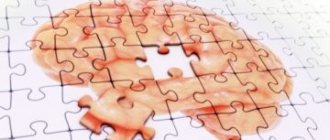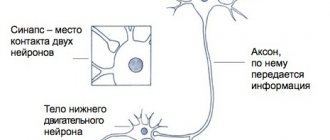Doctors at the Leto Mental Health Center observe various types of disorders. Among them is explosive psychopathy - a personality disorder that is manifested by ardor, short temper, conflict behavior and even aggressiveness. Such people literally suffer from themselves - they are aware of the inconvenience that arises because of them for those around them. If you find the same symptoms in your loved ones, call 8(969)060-93-93 , we will help you get rid of the pathology, and your loved ones will regain the joy of life.
Total information
The word “explosive” is borrowed from the English language - in translation “explosion” (pronounced “explosion”) means “explosion”. The character of the sufferer can really be called “explosive” - unpleasant symptoms arise suddenly. This is one of the most common types of psychopathy - a disorder, the essence of which psychologists convey in three words:
- disinhibition;
- courage;
- meanness.
It happens that you were suddenly attacked by a saleswoman at the market, or an opponent “drove” over you on social networks, although it seemed that you did nothing to provoke such a pronounced reaction. It is possible that these individuals suffer from the described disease. Thanks to many years of experience, our specialists are able to discern this pathology.
The aggression of people who have been diagnosed with this form of psycho-emotional disorders is forced to be tolerated by their environment. If they accidentally ended up in someone’s personal space, that’s not so bad; further communication can be avoided so as not to repeat the sad experience. But such individuals suffer from family members and other relatives, friends, work colleagues, neighbors - it is impossible or difficult for these categories to simply stop communicating due to life circumstances.
Friendship
Relationships with other psychotypes are determined by the basic personality traits of the epileptoid. Often epileptoids become faithful conductors of the ideas of paranoiacs. They are like the apostles of Jesus, like the retinue of a king. The main thing for an epileptoid is to accept the paranoid’s idea and follow it to the end. Hence the loyalty of the epileptoid in friendship. Epileptoids are the most faithful friends; they do not betray or cheat on a friend. Epileptoids choose friends in childhood and remain friends with them all their lives; such friendships often occur with front-line comrades. Epileptoids support their friends throughout their lives, help them with work, build a career, and support them with money. If an epileptoid's friend betrays him, the epileptoid will experience real shock and disappointment with life. Unlike hyperthymics or paranoiacs, epileptoids do not betray or change their friends.
Causes
The immediate cause of explosive psychopathy is the characteristics of the central nervous system:
- congenital;
- acquired.
In the latter case, such “acquisition” is usually observed at an early age. Several forms of pathology have been identified:
- nuclear - appears against the background of human physiological characteristics;
- marginal - develops due to unfavorable external influences.
The causes of the nuclear form are:
- unfavorable heredity - usually this form of behavior is observed in other family members;
- disruption of pregnancy in the individual's mother;
- complex (often pathological) childbirth, during which it appeared;
- developmental disorders at an early age.
The causes of the marginal form of explosive psychopathy are:
- lack of proper education;
- regular conflicts between father and mother in front of the child;
- childhood psychotrauma;
- chronic long-term illnesses;
- traumatic brain injuries and their consequences.
To help such patients, we carefully study each case individually and take into account all the nuances. Our doctors believe that important causes of regional explosive psychopathy are also violation of the personal space of a child or adolescent, persecution by others, regular humiliation in the family and society, extremely gross suppression of the individual, and indifferent attitude towards minors. Although the disorder often arose in the opposite situation - in the case when the child was adored, indulged in every possible way, and did not prohibit any actions.
Typically, explosive psychopathy is identified with such features as:
- extroverted character type;
- explosive temperament;
- lack of self-control;
- stubbornness.
The sooner the atmosphere in which a child lives is normalized, the greater the chance that he will not suffer from explosive psychopathy. If, as he grows up, he is surrounded by restrained, wise, calm people, this is a favorable factor; thanks to it, an explosive child will grow into a person who will take care of the moral comfort of those around him.
The marginal form is easier and faster to correct, and we have extensive experience in its implementation. Disorders of behavioral reactions are less pronounced, the patient is more socially labile - ready to control his behavior and work on himself. The nuclear form has a less favorable prognosis.
Epileptoid psychopathy: what is this disease, causes, symptoms || The explosive type of psychopathy is
Epileptoid psychopathy is a personality disorder characterized by severe affective outbursts that do not correspond to the strength of the external stimulus. Because of such attacks, this disorder is also called explosive psychopathy (from the English explosion - explosion, flash).
According to the new revision of the ICD-10 disease classifications, epileptoid psychopathy has been assigned and remains under the diagnosis of impulsive personality disorder. The impulsive type is one of two types of emotionally unstable personality disorder. The second type is called borderline. They are united by emotional imbalance, impulsiveness, and low self-control.
Main features
Epileptoid psychopathy is distinguished from other personality disorders, including borderline disorder, by several indicative features:
- High emotional instability, in particular severe affective outbursts - an emotional explosion with violent motor activity;
- An aggravated reaction, the degree of strength much exceeding the degree of strength of the external stimulus;
- Incontinence, low self-control or lack thereof;
- Aggressive and threatening behavior not only towards others, but also towards oneself - auto-regression (self-harm, self-flagellation, alcoholism and other manifestations).
Symptoms
Epileptoid psychopathy manifests itself in various behavioral characteristics. Before determining whether a person is an explosive psychopath, one must look at the symptoms of all subtypes of personality disorders. Among them:
- Inconsistency between personal positions and behavior, manifested in affectivity, excitability, impulse control, processes of perception and thinking, attitudes towards others;
- The chronic nature of abnormal behavior that has been going on for some time and does not occur episodically;
- Abnormal behavior affects all areas of a person’s life, disrupting adaptation to personal and social situations;
- The first manifestations occur in childhood or adolescence and continue into adulthood;
- Susceptibility to personal distress (the body’s inability to adapt to stress at the stage of exhaustion);
- Deterioration in professional and social productivity.
To be specifically defined as emotionally unstable personality disorder, the following symptoms must be present:
- Tendency to act impulsively, without considering the consequences, as well as instability of mood;
- Minimal planning ability;
- Affective outbursts, mainly angry, and new attacks of anger when outbursts are suppressed or condemned from the outside.
If all three symptoms are observed, then we can conclude that there is an emotionally unstable personality disorder. It remains to be determined whether the disorder is impulsive or borderline. Epileptic psychopathy usually manifests itself through the following symptoms:
- Great emotional instability, lack of control over one’s impulsiveness;
- Outbursts of aggression, rage, anger, threatening or cruel towards others;
- Conflict, disputes, constant discontent;
- Grudge, stubbornness, sullenness, imperiousness;
- Tendency to hypocrisy, flattery, sweetness, and the use of diminutives in speech;
- Categorical, uncompromising;
- Tendency to abuse alcohol, drugs, vagrancy, gambling, and sometimes violence and murder.
Features of the manifestation of pathology
An epileptoid psychopath reacts to stressful situations with outbursts of negative emotions that are incommensurate with the scale of the problem. If suddenly they are faced with condemnation or an attempt to prevent an emotional outburst, this provokes them to even more aggressive and threatening behavior.
Such people are constantly dissatisfied with something, they look for reasons to enter into conflict with their interlocutor. In an argument, psychopaths are very emotional, scream and stubbornly try to convince their interlocutor that they are right. Trying to defend justice, they often come to defend themselves, their rights and interests. This is why explosive psychopaths find it difficult to get along and adapt in groups.
Patients with impulsive personality disorder are prone to manifestations of vindictiveness, selfishness, domineering, excessive accuracy and pedantry. For all their aggression, they are often characterized by flattery, sweetness, and hypocrisy. Psychopaths either love or hate the people around them. But even those they love often suffer from manifestations of impulsive states.
In men and women
Please note that the manifestations of psychopathy often depend not on gender, but on the character of a particular person.
female psychopaths are domineering, capricious and vindictive. they try to keep everything under their control. Often, for their selfish personal purposes, they show hypocrisy and hypocrisy. At the same time, pedantry and accuracy make them economical in everyday life.
male psychopaths show great aggression, often trying to achieve what they need by force and humiliation of their interlocutor. tend to manipulate people, have problems in love relationships.
treatment
Psychological treatments for personality disorders typically include cognitive behavioral therapy and psychoanalysis. Moreover, it can be carried out individually and in groups. in any case, the doctor must build a trusting relationship with the patient, and then understand the reasons for the appearance of impulsive disorder with subsequent help in correcting behavior.
Epileptoid psychopathy involves treatment with several groups of medications:
- mood stabilizers (mood stabilization),
- neuroleptics (suppression of psychomotor agitation),
- sedatives (reducing emotional stress),
- antidepressants (to treat side effects such as distress).
preventive methods
Personality disorders are difficult to prevent. This is influenced by many factors that do not always depend on the patient or his loved ones.
People begin to think about this when an individual begins to cause problems for others.
The best prevention would be to monitor yourself and the people around you in order to notice deviations in behavior in time and have a conversation with a qualified doctor.
If you notice abnormal behavior or symptoms of any mental illness in yourself or other people, you should immediately visit a specialist. It is better to make sure that everything is fine with the person than to then deal with the problems that have accumulated later.
Source: https://clinica-fenix.ru/blog/eksplozivnyy-tip-psikhopatii-eto/
Signs
The basic symptom of the described disorder is outbursts of anger. They:
- repetitive;
- uncontrolled;
- provoked by the slightest psycho-emotional stimuli.
Based on careful observation of patients, doctors at the Leto clinic believe that the effect of such irritants is just a formal reason for the appearance of rage; in fact, it can arise “out of nothing.” Typically, attacks of explosive psychopathy are preceded by banal everyday and work troubles:
- breakfast untimely prepared by the wife;
- a child's poor grade at school;
- subordinate being late for work;
- crowding on public transport and so on.
Ordinary ordinary situations cause aggression, projected onto others. The person himself points out what turned him on. But often there is no visible reason - the eruption of such an emotional “volcano” is possible against the background of complete well-being, in the absence of any provocative factors.
His relationships depend on how much the patient can control outbursts of anger:
- family;
- friendly;
- workers;
- social.
Many people find a personal way to calm themselves as soon as the first signs of an attack appear, and thanks to this they save their families, jobs, and so on. Others are unable to do this - not due to a lack of desire, but due to physiological deviations in the activity of the brain, due to which they are not able to adapt in society. Therefore they:
- often get married and divorced;
- change jobs regularly;
- can't make friends.
Such individuals with explosive psychopathy are often diagnosed with somatic diseases that arise from stress. This:
- peptic ulcer of the stomach and duodenum - the formation of one or more deep defects in the walls of these organs;
- myocardial infarction - necrosis of a fragment of the heart muscle, which develops against the background of a violation of its blood supply;
- Diabetes mellitus is a failure of carbohydrate metabolism due to a lack of the hormone insulin.
Therefore, if necessary, we involve related specialists if our patients need their consultation. We have huge long-term collegial connections with other clinics, and we treat not the disease, but the patient - this is precisely the postulate that is one of the most important in medicine.
1 Peculiarities of behavior of people with epileptoid personality type
The epileptoid personality type is a variant of psychological accentuation, when a teenager or an adult develops individual traits excessively, creating a disharmonious character. An epileptoid is characterized by the following behavioral features:
- Pedantry, a penchant for rituals and repetitive actions. These people greatly value ideal order and carefully monitor the impeccable observance of the rules and regulations known to them. They feel acute discomfort from any thing that is out of place. They are annoyed by actions and actions that do not correspond to certain standards. Epileptoids zealously monitor compliance with the rules and constantly make comments to everyone.
- Some viscosity and inhibition are suddenly replaced by outbursts of uncontrollable anger. Epileptoids show exceptional restraint and calm most of the time. Their movements are measured, their behavior is somewhat prim. During such states, people with an epileptoid type of character accumulate information about the world around them, or rather about mistakes and imperfections that they notice even in small things. They tend to think about the same fact or experience some emotion for a long time. Most often, the object becomes a negative fact that worries, bothers and irritates the epileptoid. Discomfort from incorrectly placed things, inaccurately spoken words, too loud laughter and other irritating factors accumulates in them. At some point, the limit of patience ends, an acute breakdown occurs, which is accompanied by anger, insults, raising the voice, and sometimes assault. This phenomenon is called explosiveness.
- Incredible persistence, reaching the point of tediousness. Epileptoids are unsurpassed perfectionists; they will never quit without completing it. Even if the idea seems hopeless to others, they will diligently continue to move towards the goal, strictly following the intended path. Such people are not inclined to consider alternative options, direction of movement, and do not like change.
- Refusal to compromise and flexibility in communication. Such people are intolerant of any dissent and consider themselves right. It is useless to argue with them and try to prove something - a person with an epileptoid personality type will remain unconvinced, and after communication will conclude that the interlocutor is inappropriate, narrow-minded and hopeless. Such people can express their thoughts directly, without thinking about the reaction that this will provoke. The tone of the epileptoid is always categorical, the intonations are confident, and the wording does not imply discussion.
A harsh tone, nitpicking over trifles, unwavering adherence to instructions and intransigence, combined with character, make interacting with such a person a difficult task. When communicating with people whose authority is undeniable for them, epileptoids are obsequious, emphatically polite, they are characterized by sweetness and the desire to demonstrate their commitment to the opinion of a respected person.
Features of the flow
Symptoms of explosive psychopathy are observed already in childhood. The child is usually disobedient, unyielding, stubborn, and often conflicts with peers. Often he even uses physical force to defend his interests.
Patients in adulthood may be aware that they have abnormalities, but are unable to control them. They do not know how to regulate conflicts of varying degrees of severity, even if this is fraught with stress for themselves.
Explosive psychopathy is not a character trait, but a deviation. It must be combated, as it can cause serious administrative and criminal violations. Such people are capable of “getting excited” for literally a trifle.
Resources and limitations
This psychotype also includes suicidal tendencies. Without realizing what he is doing, at the peak of emotions he often tries to commit suicide. And if no one stops him, then, in principle, the attempt risks being successful.
He is also distinguished by an unhealthy passion for easy money and quick enrichment. Accordingly, I am addicted to gambling. There is no need to invest, work hard and think hard.
Thinking is inhibited, that is, it catches the thought, but it needs more time than others to process and understand it.
Given the passion for order, such individuals can be entrusted with work that involves sorting things and objects. They, like no one else, know how to beautifully and intelligently use space, filling it in such a way that every item is sorted and ordered.
A man can be rude and harsh, just like a girl, in principle. But at the same time, they show conformity in relationships with others. That is, they agree with other people’s opinions, ignoring their own, just to avoid conflicts and misunderstandings.
But, as you remember, this type is quite hot-tempered, so they tolerate it for some part of the time, and then, without ceremony, express everything they think about their interlocutor.
Cost of services
| CONSULTATIONS OF SPECIALISTS | |
| Initial consultation with a psychiatrist (60 min.) | 6,000 rub. |
| Repeated consultation | 5,000 rub. |
| Consultation with a psychiatrist-narcologist (60 min.) | 5,000 rub. |
| Consultation with a psychologist | 3,500 rub. |
| Consultation with Gromova E.V. (50 minutes) | 12,000 rub. |
| PSYCHOTHERAPY | |
| Psychotherapy (session) | 7,000 rub. |
| Psychotherapy (5 sessions) | 30,000 rub. |
| Psychotherapy (10 sessions) | 60,000 rub. |
| Group psychotherapy (3-7 people) | 3,500 rub. |
| Psychotherapy session with E.V. Gromova (50 minutes) | 12,000 rub. |
This list does not contain all prices for services provided by our clinic. The full price list can be found on the “Prices” , or by calling: 8(969)060-93-93. Initial consultation is FREE!
Treatment
It is carried out with the assistance of psychotherapy. The task is quite complex because you have to influence:
- human value system;
- his life principles;
- ability to relate to others.
A patient with explosive type psychopathy must himself show a desire so that others do not suffer from his actions - otherwise it will be difficult to influence him. Usually they undergo group psychotherapy sessions, thanks to which they learn to behave with the environment in various situations. This skill is reinforced in individual lessons.
Drug treatment is also carried out. Are used:
- neuroleptics - to relieve agitation;
- sedatives;
- antidepressants - according to indications and other drugs.
Doctors at the Leto mental health center know how to help patients with explosive psychopathy. They use only proven treatment methods and are guided by the experience of colleagues - Russian and foreign. Call the phone number 8(969)060-93-93 - we will listen to you very carefully and help you overcome this unpleasant problem.
More about symptoms
An essential feature of explosive psychopathy disorder is the occurrence of discrete episodes of failure to resist aggressive impulses that lead to serious malicious acts or destruction of property. The degree of aggressiveness expressed during the episode is grossly out of proportion to any provocation or exposure to the psychosocial stressor.
The diagnosis is quite complex and can only be made after excluding other mental disorders that may explain episodes of aggressive behavior. These may include antisocial personality disorder, borderline personality disorder, psychotic disorder, manic episode, conduct disorder, or attention deficit hyperactivity disorder.
In addition, aggressive episodes due to the direct physiological effects of chemicals, such as drugs or medications, as well as general health due to reasons caused by head injuries, Alzheimer's disease, may have a similar clinical picture.
The patient may describe aggressive episodes as "loss of control" or "mental attacks" in which explosive behavior is preceded by a feeling of tension or agitation and then immediately followed by a feeling of relief. The person may later feel upset, remorseful, regretful, or embarrassed as a result of their aggressive behavior.
Common signs that characterize explosive psychopathy:
- Several discrete episodes of failure to resist aggressive impulses that result in severe displays of negative emotions or destruction of property.
- The degree of aggressiveness expressed during the episodes is grossly out of proportion to any surrounding psychosocial stressors.
- Aggressive episodes are not associated with other mental disorders;
- Aggressive behavior can occur in the context of many other mental disorders, as an addition to poor mental health. The diagnosis of intermittent temper disorder should be considered only after all other disorders associated with aggressive impulses or behavior have been ruled out.









